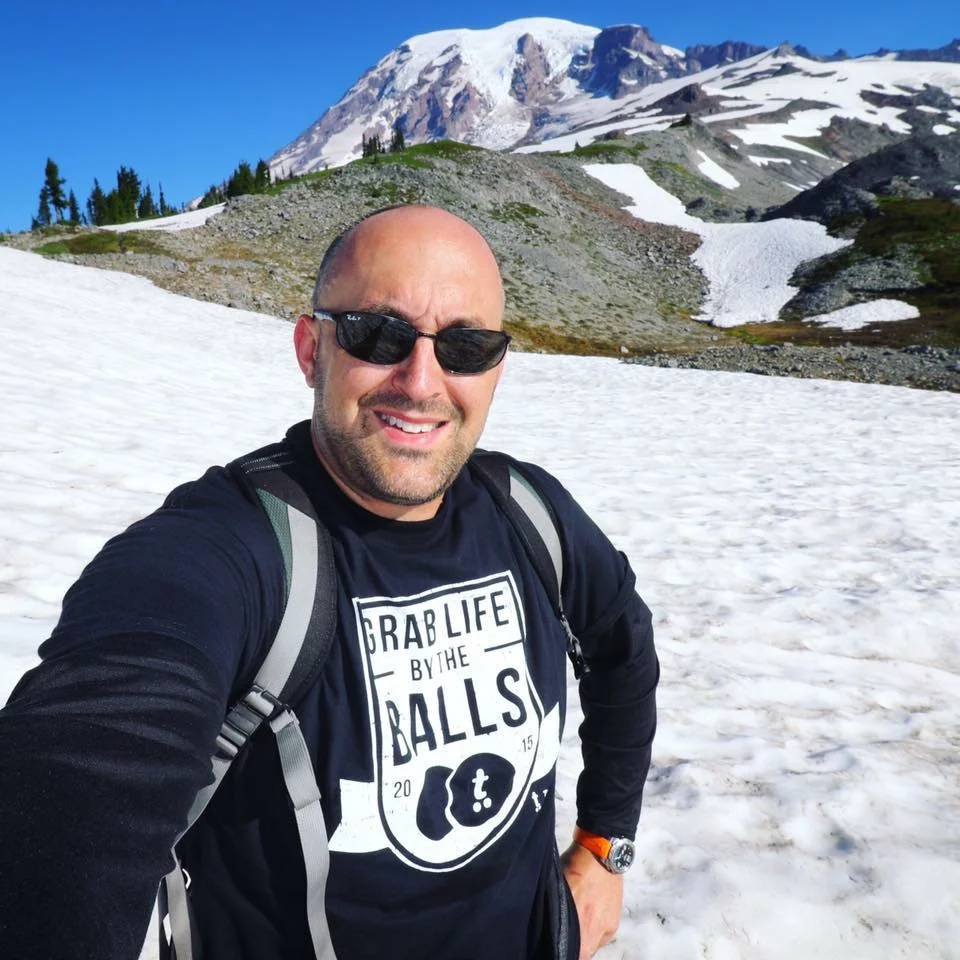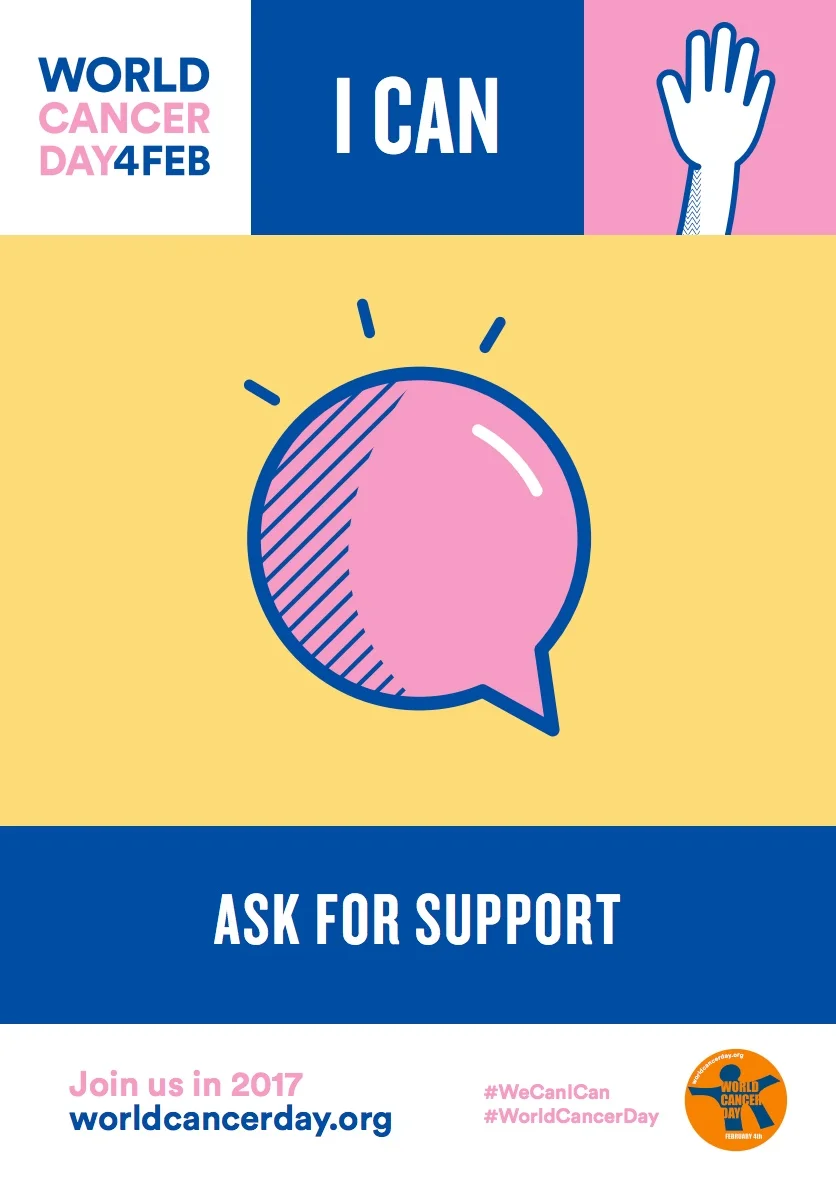Six years after my cancer fight, I still GRIEVE the loss of my life as I once knew it sometimes, thinking that everything would always be okay, that my family would always be healthy, and friends that I truly love and care about will always be around. I want to believe that, but know it's just now how things work. Why do I get so sappy and emotional? Because I love you, and I want you to know that now, today, because I know that you might not be around tomorrow, or maybe I'm the one that might not be around.
Cancer Survivors Are Grieving Too
One day I was reading my friend's website, and my jaw hit the floor when I read a post about grief. It was the first time I'd ever seen a "grief chart." I had no idea there even was such a thing, and I could easily identify myself at every single step of this big curve as a cancer survivor. I had been writing and sharing in my cancer journey for a few years at this point, and it had never occurred to me even once that this entire process and all that I was going through, was all really one massive grief curve.
Cancer Can Haunt Us For A Very Long Time
Today marks my last two days of chemotherapy for testicular cancer, six years ago. Why do I mark the last two days, and not the last day? Because I distinctly remember just how scared out of my mind I was, worrying that the chemotherapy hadn't done its job, and that I'd have to go through these months of misery all over again, possibly without a healthy exit.
Why You Shouldn't Be Afraid of the RPLND Surgery for Testicular Cancer
The retroperitoneal lymph node dissection surgery (RPLND) is a really gruesome and highly invasive surgery for some testicular cancer patients. It can be used as a primary form of treatment for some Stage I and Stage II patients that have been diagnosed with nonseminomatous germ cell tumors (NSGCT), and can also be used as a secondary form of treatment for the post-chemotherapy management of residual masses. The surgery is horrifying to many newly diagnosed testicular cancer patients and caregivers when they first read about it. Many will gravitate towards chemotherapy thinking that it’s “easier”, but I’m here to tell you not to be afraid of the RPLND surgery. It might actually be the better option for some.
The Power of Behavioral Change and Self-Love After Cancer
Overcoming Post-Cancer Depression
I happen to be a good baseline for what post-cancer depression can feel like, because there had never been even a single depressive ‘bone’ in my body prior to cancer. I was always upbeat and optimistic about everything, believed that there were solutions to every problem, and did not have pre-existing issues with depression or anxiety. My cancer diagnosis at the age of 33 is the first time I faced any mental health issues in my life at all, and they hit me like a load of bricks.
April is Testicular Cancer Awareness Month
April is testicular cancer awareness month, and as a 9 year survivor of this disease, I can tell you a few things about testicular cancer.The first is that contrary to what people might expect, testicular cancer is actually the #1 form of cancer in men ages 15-44 internationally, yet almost no one talks about the disease. It’s sad and frustrating that 20 years after the founding of a very famous organization in yellow by a now very infamous testicular cancer survivor, that we still have to struggle so hard for any sort of public awareness about this disease. Testicular cancer in young men is about as common as breast cancer is in young women, yet no one ever talks about testicular cancer! In the U.S. alone, someone is diagnosed with testicular cancer every hour, and someone dies of this disease every day.
What I Have In Common With Prince Harry - Two Years of Total Chaos, After Cancer
As an American, I tend to not pay too much attention to what members of the British Royal family are up to, but I just became a huge fan of Prince Harry. It turns out that he and I both have something in common, and that is two years of total chaos after traumatic events in our lives. For Prince Harry, it was the tragic loss of his mother, Princess Diana, 20 years ago when he was just 12 years old, and for myself, my cancer diagnosis six years ago at the age of 33.
Longing To Feel What I Know I'll Never Feel Again After Cancer
The mental challenges that we can still face in our minds, even many years after cancer. "I've been feeling extremely restless lately, and I haven't known why. I realized I've been longing for that security that we all felt about our lives before cancer, and the restlessness is because I know I'll never feel that again. At the conscious level, I've understood and accepted this for a long time, but it doesn't mean that we don't subconsciously still long to feel that again, and that it can't affect us. A bit of depression perhaps, finding myself once again longing for something that I know I'll never feel again?
Why I'm Not Doing Scans Anymore
Inside Our Minds When There's a Recurrence of Cancer - With Nalie Agustin
In my years after cancer, I experienced several recurrence scares that were so bad and so real, that I thought for certain that my cancer had returned, that I had just lived my last good day, and that I was going to die. This is what's going through our minds when there's a cancer recurrence, real or imagined, captured with the help of breast cancer thriver, Nalie Agustin
The Young Adult Cancer Time Warp
Most people experience the various stages of life in a relatively linear and predictable fashion, but what happens with all of this when you're diagnosed with cancer as a young adult? Forget about an early midlife crisis. This entire linear progression of time and life stages are blown sky high, and you experience an "entire life crisis" all at once.
How I Finally Found Peace After Cancer
Cancer Is Not Just Rogue Cells - And Not Just Inside the Patient
As I approach six years of cancer survivorship, never has it been more clear to me that cancer is not just a disease of our physical bodies, but a disease of our minds and souls as well. Thus, the argument that many make, is that cancer is not just a matter of eradicating the rogue cells from one's body, but of curing the entire patient.
Negotiating Surveillance and Long-Term Follow-up for Testicular Cancer
The National Comprehensive Cancer Network (NCCN) Guidelines for are the bible by which Testicular Cancer patients are treated and managed. The follow-up care recommendations within these guidelines only goes out to 5 years, and even within those 5 years, there's been some significant adjustments to the recommendations over time. It's entirely possible that if you were diagnosed with testicular cancer within the past few years, that you might be able to make some adjustments to your follow-up schedules in favor of fewer scans or appointments, but what do you do after that? It's up to you and can go on a case-by-case basis. Here are some answers.
On The Power of Writing to Help You Heal
Writing about cancer and all of this inner pain that it had brought into my life has never been easy, but the rewards for doing so have always far outweighed the hardship. It's one of the hardest, but also simultaneously one of the best things I've ever done.
StevePake.com Awarded as a Top Cancer Blog of 2016 by IHadCancer.com
"Steve has a way of taking ordinary experiences and turning them over to reveal a side we had never seen before. Time and time again he has united the IHadCancer community with his work as he writes about the subtle ways cancer affects us years after we're given our NED card.
Best for: finding the strength to push through the physical and emotional challenges of a post-cancer new normal."
Scorpio Cancer Survivor Problems - Betrayal
Of all the signs, Scorpios are said to handle betrayal the worst, and it's true. So true. Most people come to know feelings of betrayal from failed friendships and relationships. As awful as any of these things are, you can distance yourself from people who have hurt you or cut ties entirely, but what about when it's your own body that's betrayed you? A cancer diagnosis is the worst possible betrayal one can face, as it's our own bodies cheating on us with death. What do you do then? How do you get away? You can't.
How To Overcome Your Fears After Cancer (Or COVID)
5 Years Cancer Free, Now What?
The irony had not been lost on me that, literally, a week after my 5 year oncology follow-up for testicular cancer, that I would be hopping on a plane to attend the celebration of life service for a young man who had died of his cancer after 9. I’d known periods of huge contrasts in my life after cancer before, but none like this. Here I was quietly celebrating 5 years cancer free and finally feeling the closure that I had longed to feel for years, and so much weight being lifted off of my shoulders, yet feeling so humbled at the same time by the death of my friend, while prepping my eulogy speech to deliver at his celebration of life service on July 8th.
























